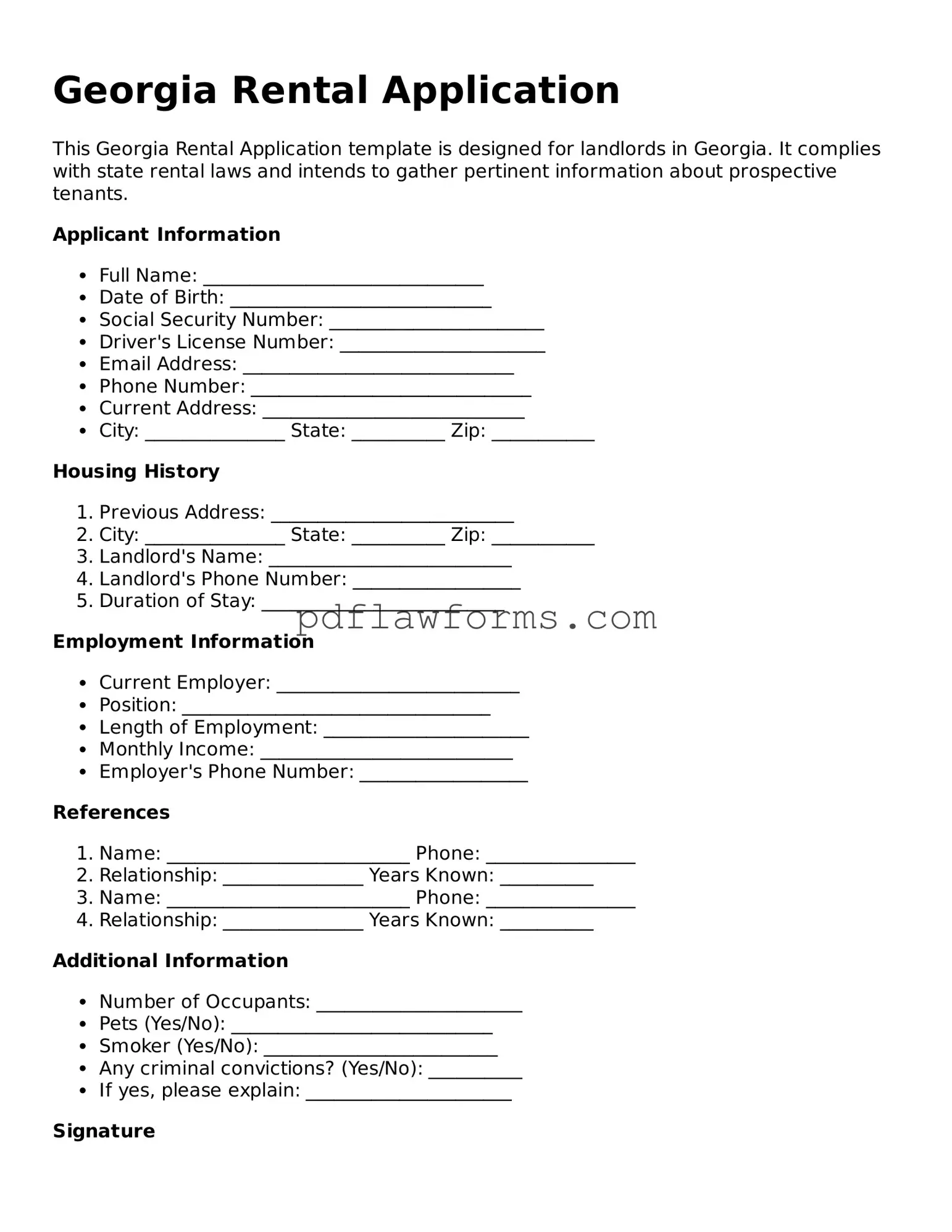Rental Application Form for the State of Georgia
The Georgia Rental Application form is a document used by landlords to collect essential information from prospective tenants. This form helps ensure that the landlord makes informed decisions regarding rental agreements. If you are ready to start your rental journey, fill out the form by clicking the button below.
Make My Document Online

Rental Application Form for the State of Georgia
Make My Document Online
You’re halfway through — finish the form
Edit and complete Rental Application online, then download your file.
Make My Document Online
or
⇩ Rental Application PDF
